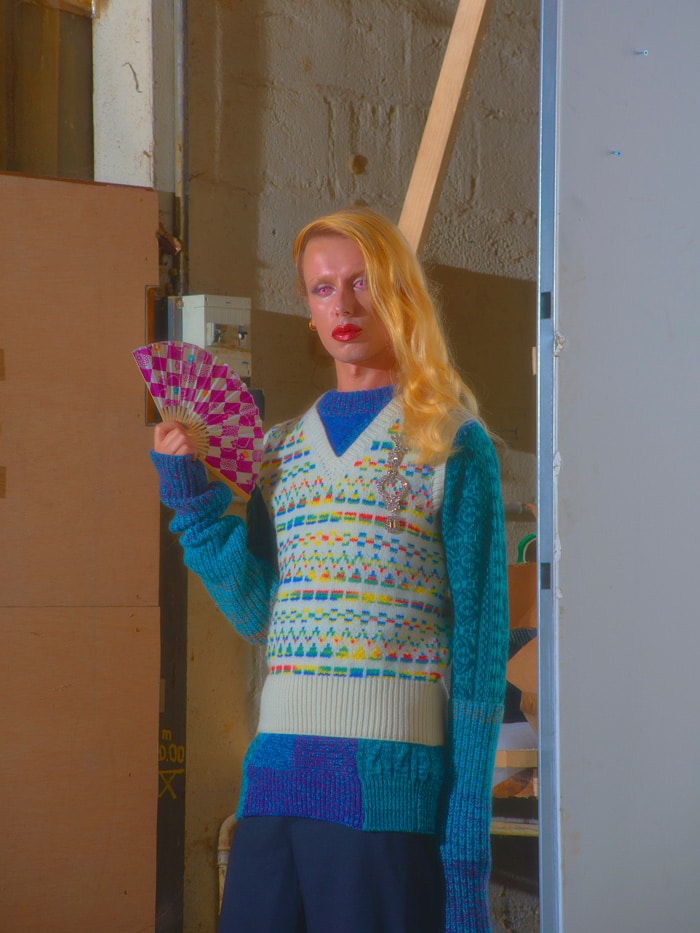
Opinion
Excel spreadsheets and walkie talkies: what comes after art school?
By Phoebe Bishop-Wright
Opinion
Excel spreadsheets and walkie talkies: what comes after art school?
By Phoebe Bishop-Wright
Updated May 16, 2020 at 10:55 AM
Reading time: 3 minutes
Business
Dec 5, 2018
Alas, alack, if I had known then that which I know now, I would not have accrued several tens of thousands of pounds of debt (which I am now also accruing interest on, nice one government) in return for a degree which shows no real signs of helping me either pay it back or, in the meantime, avoid living the last week of each month under hastily-imposed austerity measures; scanning possessions for their eBay potential and concocting ‘unconventional’ dishes from all-but-bare kitchen cupboards (seaweed and spaghetti-squash for breakfast anyone?).
In hindsight, I should have trained in psychotherapy or computer programming or to be a tree surgeon. Indeed, retrospective logic makes pursuing something far more tangible the obvious solution. A more employment friendly qualification could quickly provide a reliable trickle of income and facilitate any creative inklings that way. Although confined to evenings and weekends, the consumption and production of art would then escape a fate of death-by-association—of cross-contamination with one’s boss—and with the disillusionment that springs from seeing the inner-workings of large institutions (the elitism and often controversial funding).
This pragmatic, though arguably defeatist, approach wouldn’t necessarily negate undertaking Further Education in one’s One True Passion either. Instead, it might mean entering university with a purity of mind; with the conviction that a degree is for its own sake rather than relating to financial gains and that the three years should be spent earnestly expanding the mind rather than trying to meet arbitrary assessment guidelines.
It would also demand alternative arrangements from the companies that currently, at entry level just about cover our rent, and later on, promise to fund the holidays, the gin and tonics and the consumerist splurges we long to self-medicate with. Even if their adaptations were largely in attitude, I believe it would be transformative as we vastly underestimate how exhausting it is to pretend we are overjoyed to be somewhere that we aren’t, for five out of seven days.
Is this proposed compartmentalization really possible, however? On top of a thirty-five hour work week, how realistic is it to expect yourself to keep up an artistic practice, not to mention go through the rigmarole of self-promotion (assuming you want someone other than your mum to see it). This would be in addition to completing all the unpaid labour like laundry, grocery shopping, etc.; never mind keeping abreast of current affairs, managing any underlying mental or physical health conditions, maintaining (likely strained) relationships or, heaven forbid, having fun and getting enough sleep.
Degrees’ fees unfortunately mean they are the product in a transaction between customer and supplier, and while the insistence to quantify what should be immeasurable is both detrimental and inaccurate, the expectation we have from universities is to help students achieve employability in a field they enjoy and thus I feel they are all pedalling faulty goods.
I got a 2:1 (B+) from Central Saint Martins and immediately afterwards I worked in a factory. Okay, it was one that made charcoal lemonade, juice from cruciferous vegetables and various provisions comprising largely from soaked, pulped and dehydrated almonds (kill me), but I still got paid minimum wage and had to wear a hair net.
Cut to three years after graduation, and I am closer to living some sort of dream, on paper at least. I can type some prestigious names next to mine in one of those soul-destroying application portals and these will allow me, if I’m lucky, persistent and can continue to tolerate being lumped with the rotten tasks no one else higher up wants to do, to gradually climb the rungs of a ladder leading… somewhere. But what I have realised is that in actual fact that somewhere isn’t somewhere I ultimately want to be.
Yes, stuffing envelopes at the Tate, standing guard with a walkie talkie in The Whitechapel Gallery and tackling an enormously complicated database system to schedule the cherry-pickers putting up Christmas decorations at The Hayward might get you slightly more compelling (or failing that) impressive-sounding duties at The Barbican, but I have learnt that a spreadsheet is still a spreadsheet whether it’s about artworks or not.
Positions should be transparent; call a spade a spade and don’t make the makers fight for ‘industry experience’ they’ve been deluded into trusting will pave the way to hire heaven. To be close to something you love yet still on the fringes or embroiled in the very disparate nitty-gritty of it can be more painful than being elsewhere altogether.
I acknowledge that being younger makes it harder to want to compromise career-wise, I have no children or beautiful home to justify the trade-off. Still, I would council anyone even younger than I to seriously consider how they want to construct their existence post-compulsory education. If you are lucky enough to have parents that encourage you to follow your heart and don’t pressure you to become a lawyer, then this support must be combined with a businesslike strategy for covering your practical needs.
Forgive me if I sound ungrateful, but it does feel like we are stuck in a limbo between a past of steady promotions and less competition and a bright future of universal pay, four day weeks, flexible hours and automation. Often Excel hell has me suppressing a yell of “GO ON, AUTOMISE ME ALREADY, I’M DONE!”




